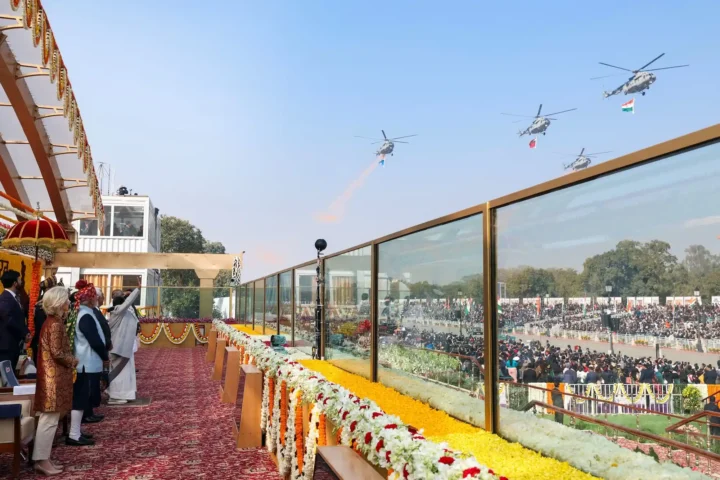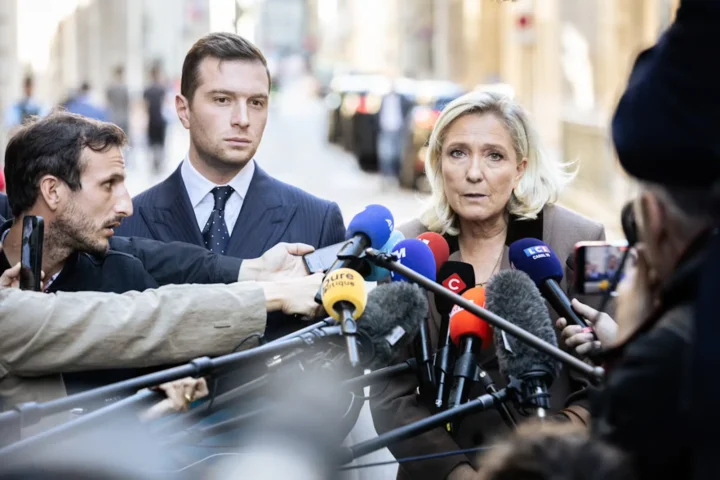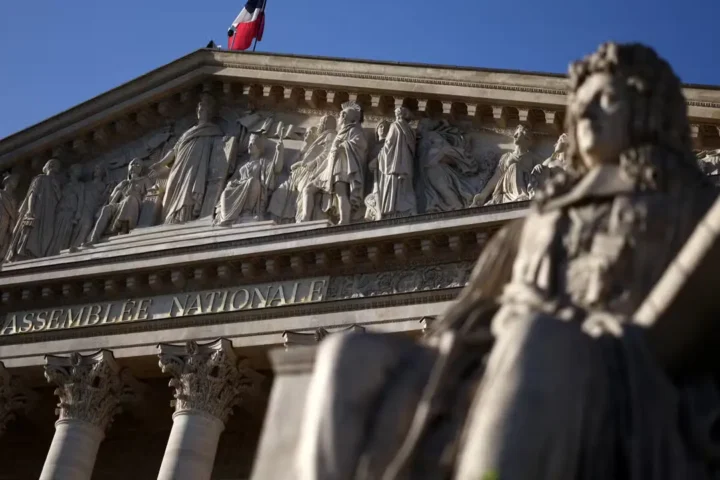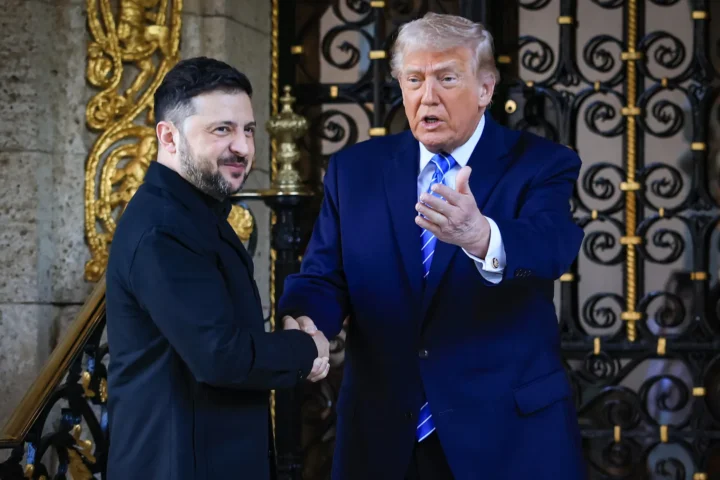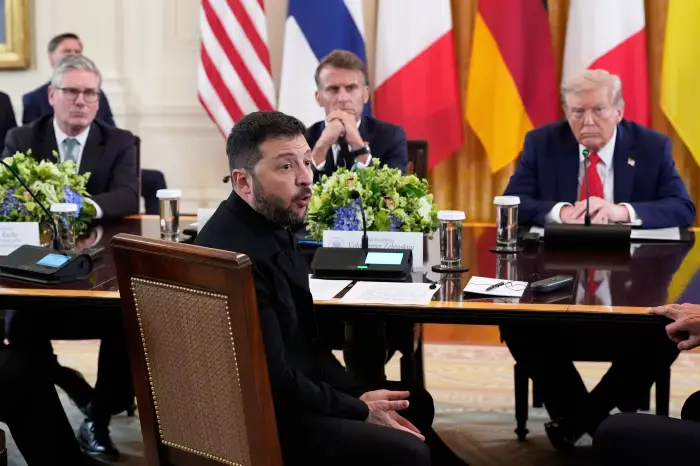As dawn broke over Kyiv on Thursday, it did so to the harrowing echoes of missile strikes and drone attacks. Russia’s largest assault on the Ukrainian capital in nearly a year left twelve civilians dead, more than ninety injured, and the international community once again forced to confront a conflict that no longer qualifies as “new” or “escalating,” but rather as a protracted, bloody stalemate fueled by hubris and global apathy. This war, now three years deep, has become less about strategic objectives and more about symbolic domination—a test of endurance, sovereignty, and geopolitical principle.
The latest Russian attack, involving more than 200 missiles and drones, was not a mere tactical maneuver. It was a pointed statement. It came as Ukrainian President Volodymyr Zelensky was engaged in diplomatic efforts abroad and forced him to abandon his meeting with South African President Cyril Ramaphosa midstream. Russia’s timing was no accident. It was a brutal punctuation mark in a week meant for dialogue—a signal to the world, and particularly to the West, that peace will not come on anyone’s terms but Moscow’s.
If there is any doubt about Russian President Vladimir Putin’s intentions, one need only look at the absurdity of international reactions. The European Union and the United Nations condemned the attack, labeling it a “mockery of peace” and a “violation of international humanitarian law.” These words are correct. But they are also tired. For every outrage voiced by a global institution, Russia has offered an equivalent act of escalation. We are caught in a grotesque dance of statements and salvos, each feeding the next.
Perhaps the most surprising—and, frankly, the most disorienting—response came from former U.S. President Donald Trump. “Vladimir, STOP!” he wrote on Truth Social. This uncharacteristic rebuke followed closely on the heels of a now-typical Trumpian twist: blaming Zelensky for rejecting a U.S.-brokered peace plan that would have handed Crimea to Russia. In the space of 48 hours, Trump managed to both condemn Putin and undermine Ukraine’s sovereignty. It was a masterclass in diplomatic doublespeak and a reminder that political opportunism often masquerades as statesmanship.
To be clear: there is no peace in surrender. Zelensky was right to reject the U.S. proposal that would cede Crimea—a region illegally annexed in 2014 and home to a sizable Ukrainian population. “It is our land,” Zelensky declared. That’s not just rhetoric; it’s the cornerstone of any nation’s right to exist. To concede territory under threat of violence sets a dangerous precedent not only for Ukraine but for every small or mid-sized nation facing a larger, more powerful neighbor.
Unfortunately, not everyone in Washington shares this clarity of vision. U.S. Secretary of State Marco Rubio’s blunt threat to “move on” from peace talks if no progress is made soon reveals a growing impatience—and perhaps more cynically, a desire to wash American hands of a war that continues to test its political will. Rubio’s absence from a critical London peace conference underscores the fading commitment of U.S. leadership in the face of complex diplomacy.
And yet, the international chessboard is not static. While Kyiv burns, the rest of the world juggles its own crises, power shifts, and political reckonings. In South Korea, the indictment of former President Moon Jae-in over alleged bribery charges marks another chapter in the country’s long saga of political volatility. Coming on the heels of President Yoon Suk-yeol’s impeachment for a failed martial law order—widely viewed as a soft coup attempt—these developments expose the fragility of democratic institutions even in technologically advanced, economically developed nations.
Meanwhile, the United States is working to mend strained relations with South Africa. President Trump and President Ramaphosa are reportedly planning a meeting to address bilateral issues, including the ongoing war in Ukraine. This marks a curious turn in diplomacy—two leaders with vastly different political philosophies agreeing that the war must end, yet standing on opposite sides of the geopolitical chasm. It’s not lost on anyone that this olive branch from Washington comes after months of punitive measures against Pretoria, including tariff hikes, aid cuts, and diplomatic snubs over its position on Israel and its lawsuit at the International Court of Justice.
This is the complex reality of our era: one where every conflict is interwoven with another, where no policy decision exists in isolation. The war in Ukraine cannot be separated from political instability in East Asia, nor can it be divorced from American attempts to preserve influence in Africa or from the rise of populism across the West.
Amid this swirl of crises, British Prime Minister Keir Starmer is quietly maneuvering for a new defense agreement with the European Union. Though framed as a reaction to global instability, it is also a strategic pivot—one meant to reinforce London’s relevance in post-Brexit Europe without alienating Washington. Starmer is walking a diplomatic tightrope, balancing between two global powers while trying to present Britain as a responsible, multilateral actor in an age of isolationism.
This is, perhaps, the underlying theme of the moment: everyone is repositioning. Whether it’s Ukraine asserting its sovereignty, the U.S. recalibrating its global commitments, or smaller nations trying to stay relevant in a reshuffling world order, we are witnessing not a single geopolitical crisis but the reconfiguration of power itself.
Yet through all this, one truth remains: Ukraine is still under siege. Civilians are still dying. Cities are still crumbling under fire. And peace—true peace, not the kind brokered by land-for-lives compromises—remains elusive.
There are no simple answers here. But there are moral lines. One of them runs through Crimea and the blood-soaked plains of Donetsk. Another runs through the halls of international diplomacy, where silence and equivocation too often serve as policy.
We must remember that peace is not merely the absence of war. It is the presence of justice, sovereignty, and dignity. If those principles are negotiable, then we have already lost—whether or not the bombs keep falling.
It’s time the world stops treating Ukraine as a problem to be managed and starts recognizing it for what it is: a frontline in the battle for the soul of international law and order. And if we falter here—if we allow apathy or political fatigue to guide our response—then we can expect Kyiv’s fate to echo far beyond Ukraine’s borders.
Because what burns in Kyiv today may blaze elsewhere tomorrow.


